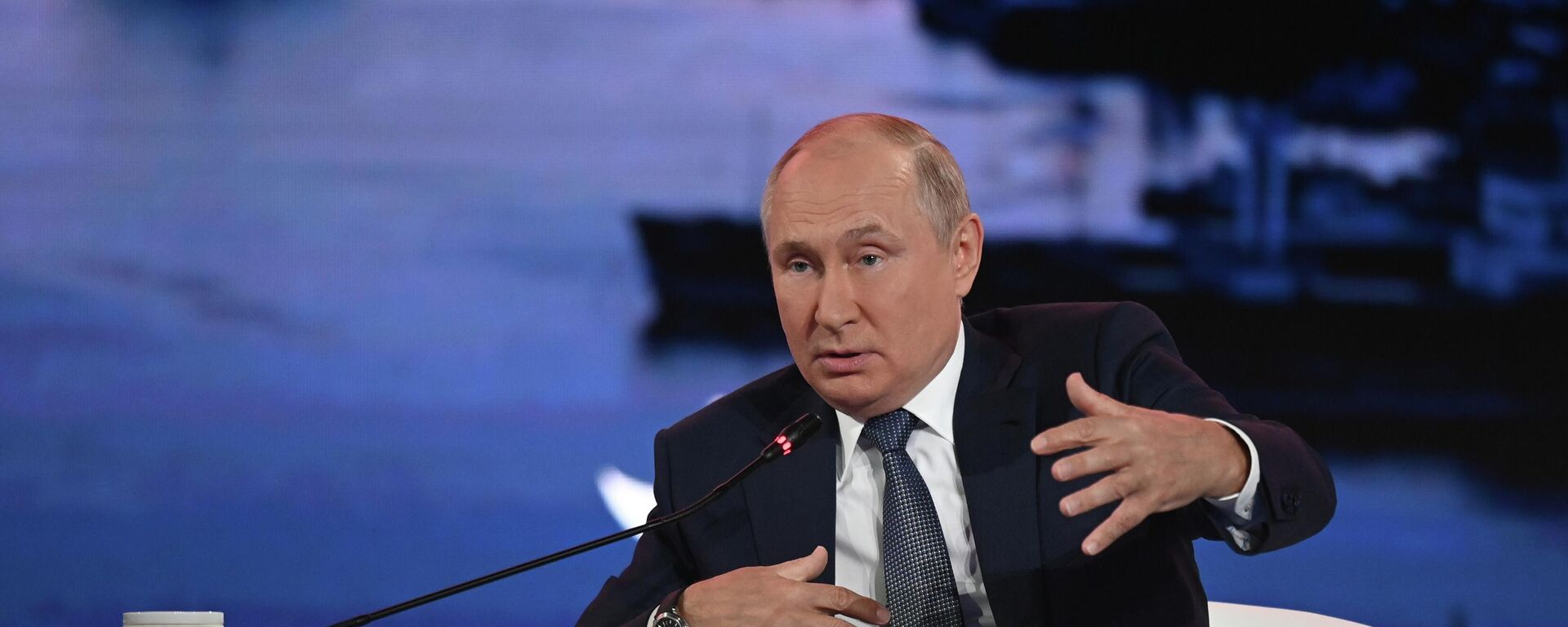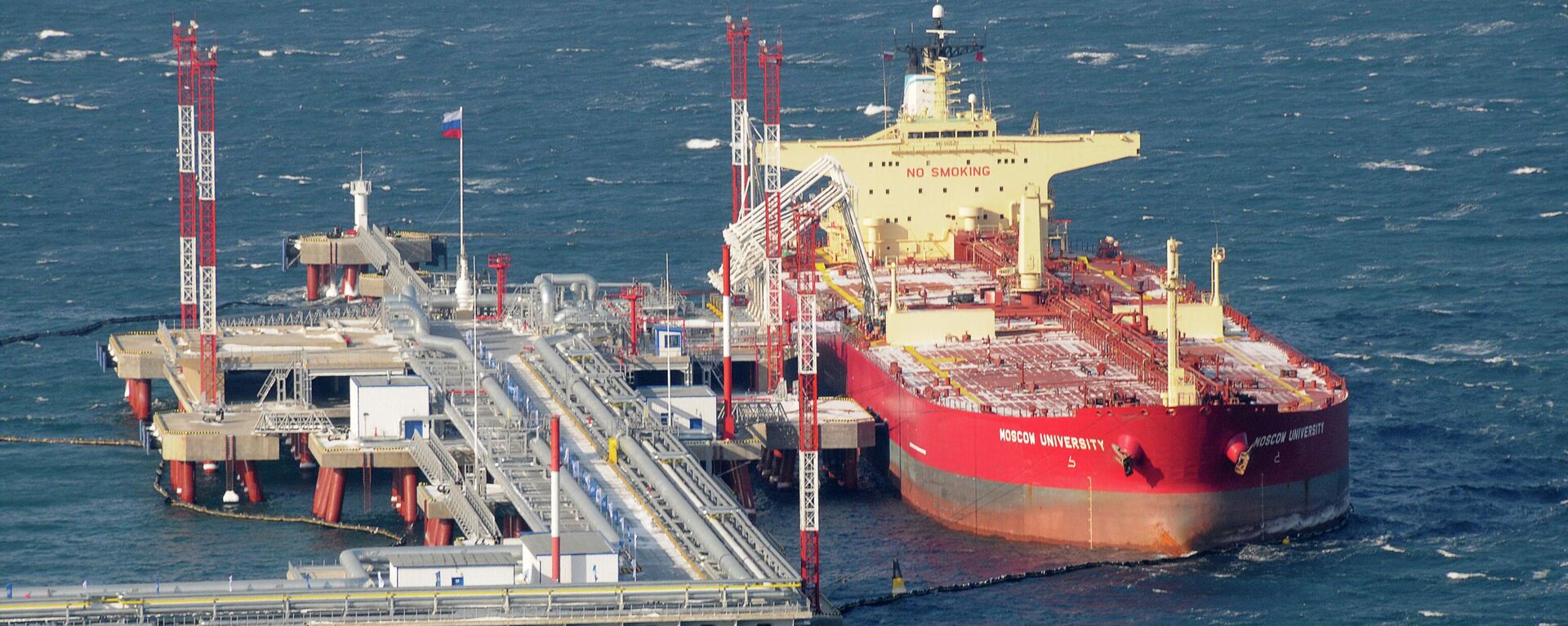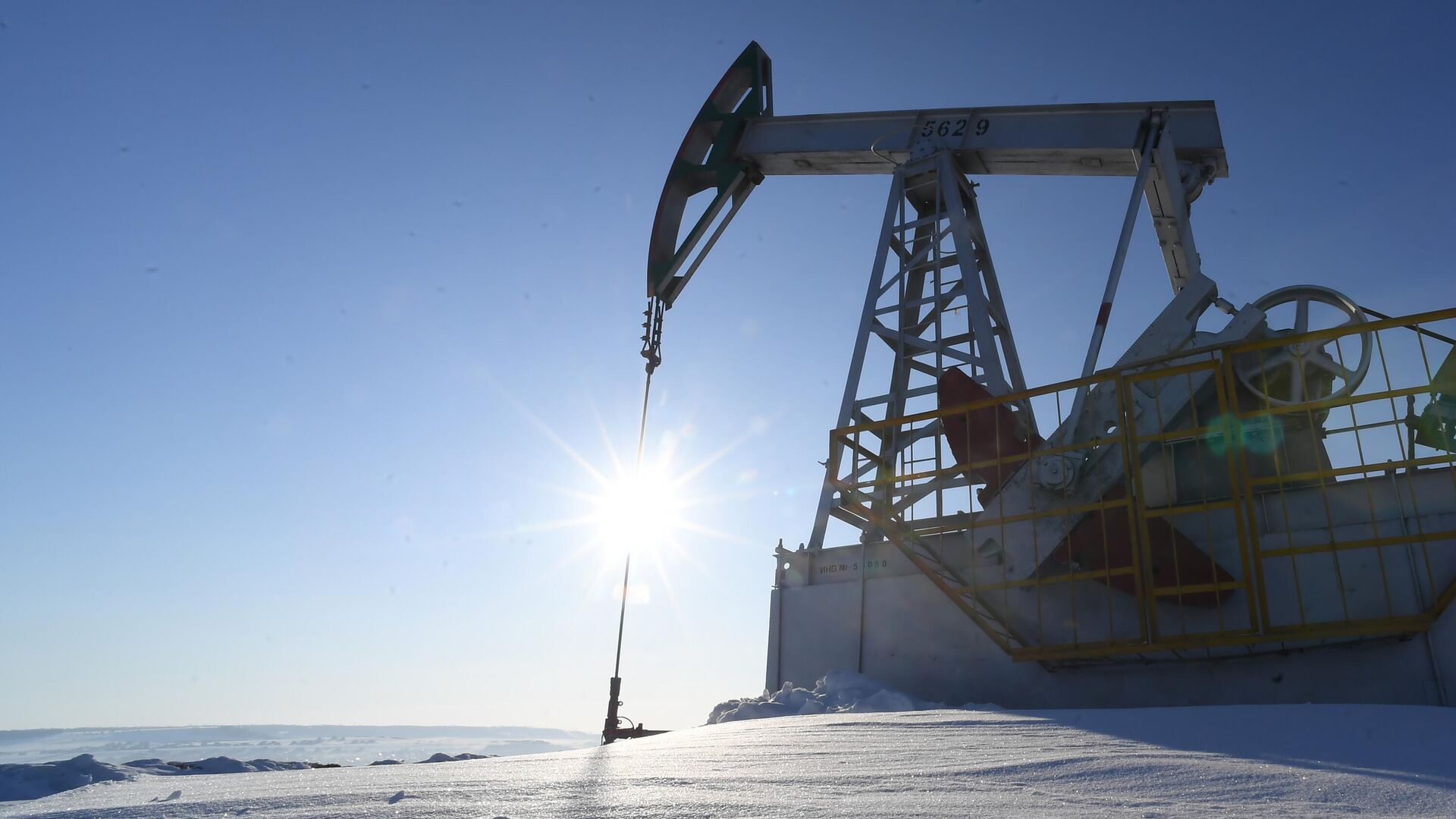https://sputnikglobe.com/20221213/price-cap-on-russian-oil-may-lead-to-higher-fuel-prices-in-long-term---ex-regulator-1105429634.html
Price Cap on Russian Oil May Lead to Higher Fuel Prices in Long Term: Ex-Regulator
Price Cap on Russian Oil May Lead to Higher Fuel Prices in Long Term: Ex-Regulator
Sputnik International
WASHINGTON (Sputnik) - The West's price cap on Russian oil may lead to a rise in fuel prices in a few years after supply dwindles and Moscow does not have... 13.12.2022, Sputnik International
2022-12-13T18:44+0000
2022-12-13T18:44+0000
2022-12-13T18:44+0000
economy
2022 russian oil price cap
russia
russian oil shipments
oil prices
https://cdn1.img.sputnikglobe.com/img/07e6/0b/0c/1104045331_0:11:2990:1693_1920x0_80_0_0_bf22c45c86f90bbb7c6667c5b51f3518.jpg
The United States, European Union and other Western allies last week placed a price cap of $60 per barrel on Russian crude as part of an effort to limit earnings they said Moscow could use to fund the special military operation in Ukraine.Former Texas Railroad Commission commissioner Ryan Sitton said that in 2025-2026 he will be able to explain to everyone why oil production is insufficient.Sitton pointed out that the price cap plan will raise gasoline prices in the future, in about two years, because in the short-term the cap will drive down revenue and crude oil supply from other countries, hurting their financial resources to continue to drill more wells.The price cap plan should drop gasoline prices down for a short while before the long-term consequences begin to emerge once Russian supply drops, according to Sitton.The European Union's $60 per barrel price cap on Russian oil went into effect on December 5, together with a ban on seaborne exports. The cap will be reviewed every two months to remain at 5% below the International Energy Agency benchmark. The G7 nations and Australia have also capped Russian oil exports at $60 per barrel.As of Monday night, the West Texas Intermediate (WTI) oil benchmark was $73 a barrel and the Brent Crude benchmark nearly $80 a barrel.Russian Deputy Prime Minister Alexander Novak, commenting on the decision, said that Russia would not accept the price cap, even if the measure forced it to cut oil production. According to Novak, such restrictions are interfering with market forces.Sitton expects Russia will sell its oil to countries imposing the price cap.Russian Oil Can Find Way to Global Market Through Chinese RefineriesMoscow can continue to provide Russian oil to the West, despite the price cap, by going through Chinese refineries at discounted prices which will help give Beijing an advantage.Such a partnership between Russia and China would hurt some of the biggest independent US refineries, such as Marathon Oil, Valero and the Phillips 66 Company since they must buy US, European and other international oil at about $70-$75 a barrel, Sitton said.Although Russia claims it will not sell oil to countries that implement the price cap plan, Sitton expects they will."The Russians are not really incentivized to sell to us - they will, I actually think they're talking trash, they will, they rather sell those barrels at some point," Sitton said. "They'll make it to the markets a different way. Some other trader will buy them and put them in a tanker, they'll send them to Middle East and blend them with something else and so they will make it to market."The Chinese are buying a massive amount of Russian crude oil, and luckily for the Russians, the Chinese have 14 million barrels a day of refining capacity, Sitton said.
https://sputnikglobe.com/20221209/putin-russia-wont-suffer-losses-after-west-imposes-oil-price-cap---no-matter-what-1105274789.html
https://sputnikglobe.com/20221208/how-russian-oil-price-cap-may-affect-ordinary-peoples-lives-1105198746.html
https://sputnikglobe.com/20221209/new-master-of-seas-g7-price-cap-vs-russian-oil-fleet-insurance-companies--northern-sea-route-1105271559.html
https://sputnikglobe.com/20221206/how-g7-price-cap-started-disrupting-global-oil-flows-while-failing-to-slash-russias-earnings-1105113734.html
russia
Sputnik International
feedback@sputniknews.com
+74956456601
MIA „Rossiya Segodnya“
2022
Sputnik International
feedback@sputniknews.com
+74956456601
MIA „Rossiya Segodnya“
News
en_EN
Sputnik International
feedback@sputniknews.com
+74956456601
MIA „Rossiya Segodnya“
Sputnik International
feedback@sputniknews.com
+74956456601
MIA „Rossiya Segodnya“
2022 russian oil price cap, russia, russian oil shipments, oil prices
2022 russian oil price cap, russia, russian oil shipments, oil prices
Price Cap on Russian Oil May Lead to Higher Fuel Prices in Long Term: Ex-Regulator
WASHINGTON (Sputnik) - The West's price cap on Russian oil may lead to a rise in fuel prices in a few years after supply dwindles and Moscow does not have enough revenue to support additional drilling, a former commissioner in the Texas Railroad Commission, the industry regulator in the top oil-producing state, told Sputnik.
The United States, European Union and other Western allies last week placed a price cap of $60 per barrel on Russian crude as part of an effort to limit earnings they said Moscow could use to fund the special military operation in Ukraine.

9 December 2022, 13:34 GMT
Former Texas Railroad Commission commissioner Ryan Sitton said that in 2025-2026 he will be able to explain to everyone why oil production is insufficient.
"Because the president of the United States said let's dump the Russian oil barrels on the market at $60 a barrel, which will both put those barrels on the market and it will drive the price down around the globe. Looks good for an election, it does not look good for the future of those who use oil, which is most of the world," Sitton said.
Sitton pointed out that the price cap plan will raise gasoline prices in the future, in about two years, because in the short-term the cap will drive down revenue and crude oil supply from other countries, hurting their financial resources to continue to drill more wells.
The price cap plan should drop gasoline prices down for a short while before the long-term
consequences begin to emerge once Russian supply drops, according to Sitton.
The European Union's $60 per barrel price cap on Russian oil went into effect on December 5, together with a ban on seaborne exports. The cap will be reviewed every two months to remain at 5% below the International Energy Agency benchmark. The G7 nations and Australia have also capped Russian oil exports at $60 per barrel.
As of Monday night, the West Texas Intermediate (WTI) oil benchmark was $73 a barrel and the Brent Crude benchmark nearly $80 a barrel.

8 December 2022, 16:35 GMT
Russian Deputy Prime Minister Alexander Novak, commenting on the decision, said that
Russia would not accept the price cap, even if the measure forced it to cut oil production. According to Novak, such restrictions are interfering with market forces.
Sitton expects Russia will sell its oil to countries imposing the price cap.
Russian Oil Can Find Way to Global Market Through Chinese Refineries
Moscow can continue to provide Russian oil to the West, despite the price cap,
by going through Chinese refineries at discounted prices which will help give Beijing an advantage.
"Eventually, what will happen is those Russian barrels will make it to the market one way or the other. And they may make it not as a barrel, but they may have to sell most of their barrels to China," former Texas Railroad Commission commissioner Ryan Sitton said. "China can take those barrels and refine them, and then sell that refined product on the market."
Such a partnership between Russia and China would hurt some of the biggest independent US refineries, such as Marathon Oil, Valero and the Phillips 66 Company since they must buy US, European and other international oil at about $70-$75 a barrel, Sitton said.

9 December 2022, 12:30 GMT
Although Russia claims it will not sell oil to countries that implement the price cap plan, Sitton expects they will.
"The Russians are not really incentivized to sell to us - they will, I actually think they're talking trash, they will, they rather sell those barrels at some point," Sitton said. "They'll make it to the markets a different way. Some other trader will buy them and put them in a tanker, they'll send them to Middle East and blend them with something else and so they will make it to market."
The Chinese are buying a massive amount of Russian crude oil, and luckily for the Russians, the Chinese have 14 million barrels a day of refining capacity, Sitton said.

6 December 2022, 18:14 GMT






